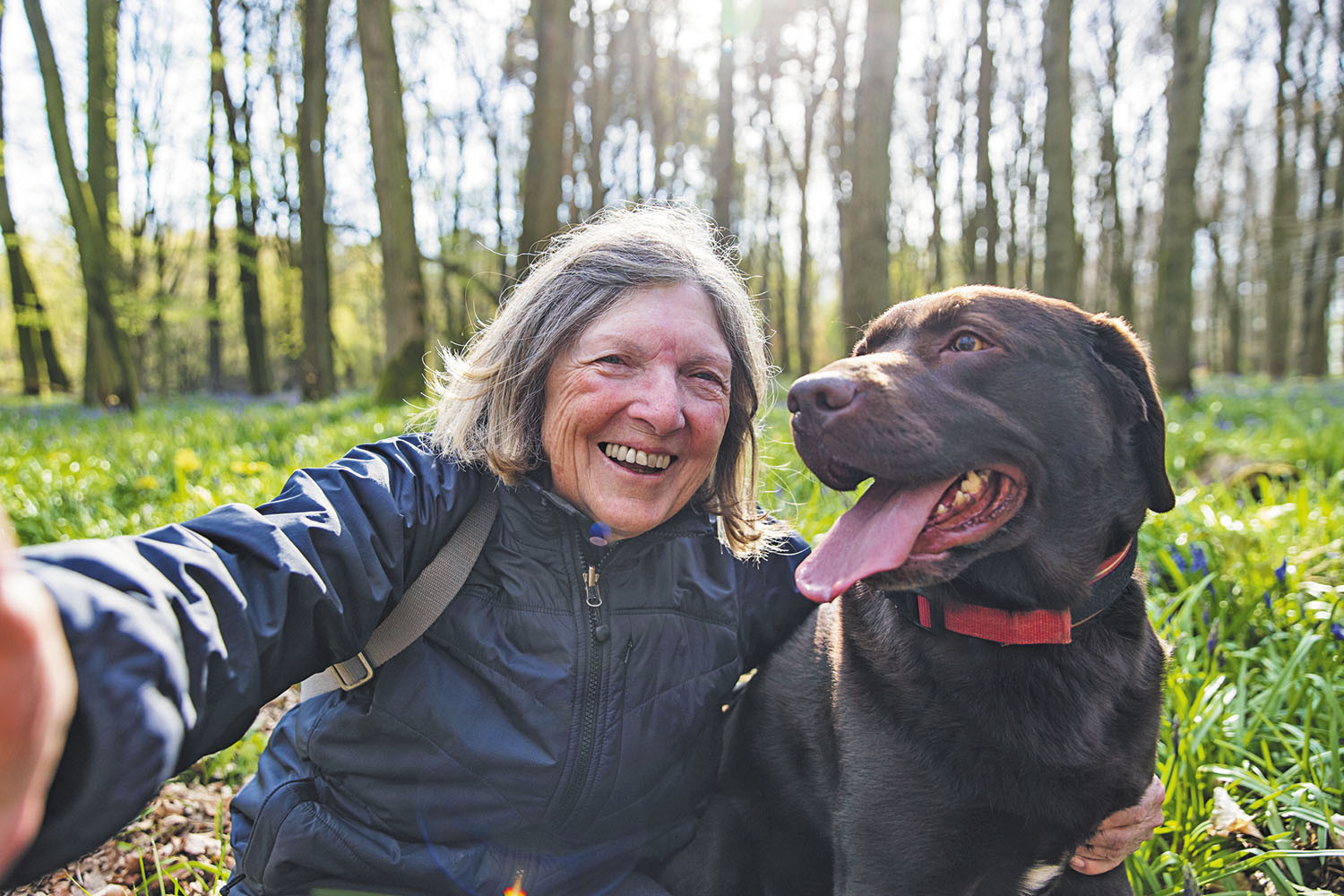The heartfelt benefits of pet ownership
Dogs and other pets can foster positive feelings and habits that may improve cardiovascular health.
- Reviewed by Deepak L. Bhatt, M.D., M.P.H, Former Editor in Chief, Harvard Heart Letter

Pet owners often describe their furry friends as much-loved members of the family. In addition, according to a survey released by the American Heart Association earlier this year, 95% of pet parents report that they rely on their pets for stress relief. Companion animals also provide other mental and physical benefits that may be good for your heart (see "The proof about cats and dogs").
"Pets provide us with a sense of belonging, connection, and contentment for which we all long," explains Dr. Beth Frates, director of lifestyle medicine and wellness in the Department of Surgery at Harvard-affiliated Massachusetts General Hospital. The excitement dogs often display when you arrive home makes you feel special and loved. Hearing a cat's gentle purring can be very soothing. Sitting quietly and stroking your pet's soft coat can trigger the release of oxytocin, the so-called love hormone, she adds.
The proof about cats and dogsNearly a decade ago, an American Heart Association scientific statement concluded that pet ownership — especially dog ownership — may be linked to a lower risk of cardiovascular disease. A more recent review, published in the August 2022 issue of Current Hypertension Reports, reiterated that message. Having a pet appears to lower the risk of developing high blood pressure and may improve blood pressure control in people who already have the condition, the authors say. The main mechanism behind these benefits? Pets seem to dampen the body's stress response. There's only limited evidence suggesting that cat owners have lower blood pressure. However, dog owners also tend to have lower resting heart rates and lower cholesterol and triglyceride levels than non-owners, according to the review. But does owning a dog actually make you healthier — or are healthier people more likely to own dogs? Most research tries to account for possible confounding factors, but that's not always possible. |
More than just a walk?
Dog owners also benefit from the extra physical activity of daily walks. Research suggests that, on average, people who own dogs walk about 20 minutes more per day than those who don't have a dog. But these walks can offer more than just a fitness boost. "Dogs are great mindfulness teachers because they live in the moment, using their senses of smell, hearing, sight, and touch as they move through the world," says Dr. Frates. Follow your dog's lead when taking a walk, paying close attention to your dog and your immediate surroundings, she suggests, noting that this mindfulness practice is good way to de-stress. Walking in a green, wooded area may offer added stress relief, as suggested by research on the Japanese practice of shinrin-yoku, or "forest bathing," which promotes a slow, relaxed enjoyment of nature.
Connecting with other people
A daily dog walk can also help you forge connections and even friendships with your neighbors and other dog owners. "With my goldendoodle Reese, I often talked to new people on my walks, especially when she was a puppy. People wanted to pet her and share their experiences with dogs or express their interest in adopting a dog," says Dr. Frates. Setting up "play dates" for your dog provides fun and extra exercise for the dogs as well as time for the owners to chat. Many friendships are started at the dog park, Dr. Frates says. Increasingly, loneliness and social isolation are being recognized as contributing to a higher risk of heart attack, stroke, or death from either of these causes. If you live alone, a pet may be particularly helpful not just for companionship but also for expanding your social circle.
Important considerations
Of course, owning a pet is a serious responsibility, requiring time, money, and energy. For older adults, the size, strength, and temperament of a dog are important things to consider, says Dr. Frates. Larger dogs may require more exercise, but be aware that smaller dogs and cats can be tripping hazards. Also, letting a pet sleep in your bed can disrupt your slumber, another factor that's important for heart health. Train your dog to sleep in its own bed and have your cat sleep in a separate room, Dr. Frates advises. Learn more about the health benefits of dog ownership in the Harvard Medical School Special Health Report Get Healthy, Get a Dog (/DOG).
Image: © Justin Paget/Getty Images
About the Author

Julie Corliss, Executive Editor, Harvard Heart Letter
About the Reviewer

Deepak L. Bhatt, M.D., M.P.H, Former Editor in Chief, Harvard Heart Letter
Disclaimer:
As a service to our readers, Harvard Health Publishing provides access to our library of archived content. Please note the date of last review or update on all articles.
No content on this site, regardless of date, should ever be used as a substitute for direct medical advice from your doctor or other qualified clinician.
















